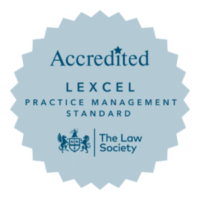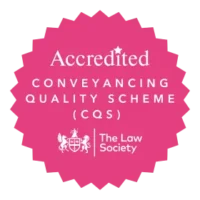Interest in Possession Trusts and Taxation
21st Jun 2023
What is an Interest in Possession Trust?
An interest in possession trust is one where a beneficiary (or life tenant) has a present right to present enjoyment. The beneficiary (or life tenant) will therefore have a right to trust income as it arises and/or the use (rent-free) of the trust property. It is also commonly referred to a “life interest” trust, although the interest in possession does not have to be for life; it can instead be for a specified period. An interest in possession trust can be set up by an individual as settlor in their lifetime, or can be set up on death through intestacy or Will.
Inheritance Tax
The Inheritance Tax position of an interest in possession (IIP) will depend on whether the trust is classified as a qualifying IIP trust. A qualifying IIP trust includes interest in possession trusts created on death and lifetime interests in possession created before 22nd March 2006.
If it is a qualifying IIP trust then the assets will be treated as forming part of the life tenant’s estate on their passing, for Inheritance Tax purposes.
If it is not a qualifying IIP Trust, then there is a special Inheritance Tax regime called the relevant property regime which will apply. Very broadly under the relevant property regime there can be Inheritance Tax charges when assets are put into trust, when capital is taken out of the trust and on every ten year anniversary.
Capital Gains Tax
Trustees are liable to Capital Gains Tax at the rate of 28% on capital gains realised on the sale of residential property and 20% on gains realised on the sale of other assets, after deduction of the trust annual exemption. The maximum trust annual exemption is half of the exemption available to an individual and is currently £3,000. This amount is shared if the settlor has set up more than one trust.
As well as Capital Gains arising on the actual disposal of assets by the Trustees, there are also deemed occasions of charge to Capital Gains Tax when, for example, beneficiaries become absolutely entitled to trust assets.
It is also worthy of note that there are a number of Capital Gains Tax reliefs potentially available to Trustees depending upon the specific circumstances of the trust and the type of asset sold.
Income Tax on an Interest in Possession Trust
Usually the income will be assessed to tax on the trustees at the basic rates of tax. Trustees are currently subject to income tax at the rates of:
-8.75% tax on dividend income;
-20% tax on other income, including interest.
In most cases the Trustees are not liable to higher rate tax, irrespective of the level of income. There are however exceptions to this including chargeable event gains on life assurance bonds, which are chargeable on the Trustees at the higher rate of tax of 45%.
Income of the Trust is declared by the Trustees to HM Revenue & Customs on an annual Trust and Estate Tax Return.
The life tenant (or income beneficiary) receives the trust income being income, net of income tax and trust management expenses. The Trustees will provide the life tenant with an R185 Certificate which shows their income entitlement from the trust for each tax year concerned. The life tenant will then declare this income on their personal Self-Assessment Tax Return, if required, and pay any additional tax due at their marginal rates of tax.
How we can help
For a free initial no-obligation appointment to discuss Trust administration, requirements or tax matters and how we can help, come to our free legal advice surgery, call us on 01761 414646, email us or contact us through our website.
Related news
Articles you may find useful
Like this article? Sign up for our regular newsletters





